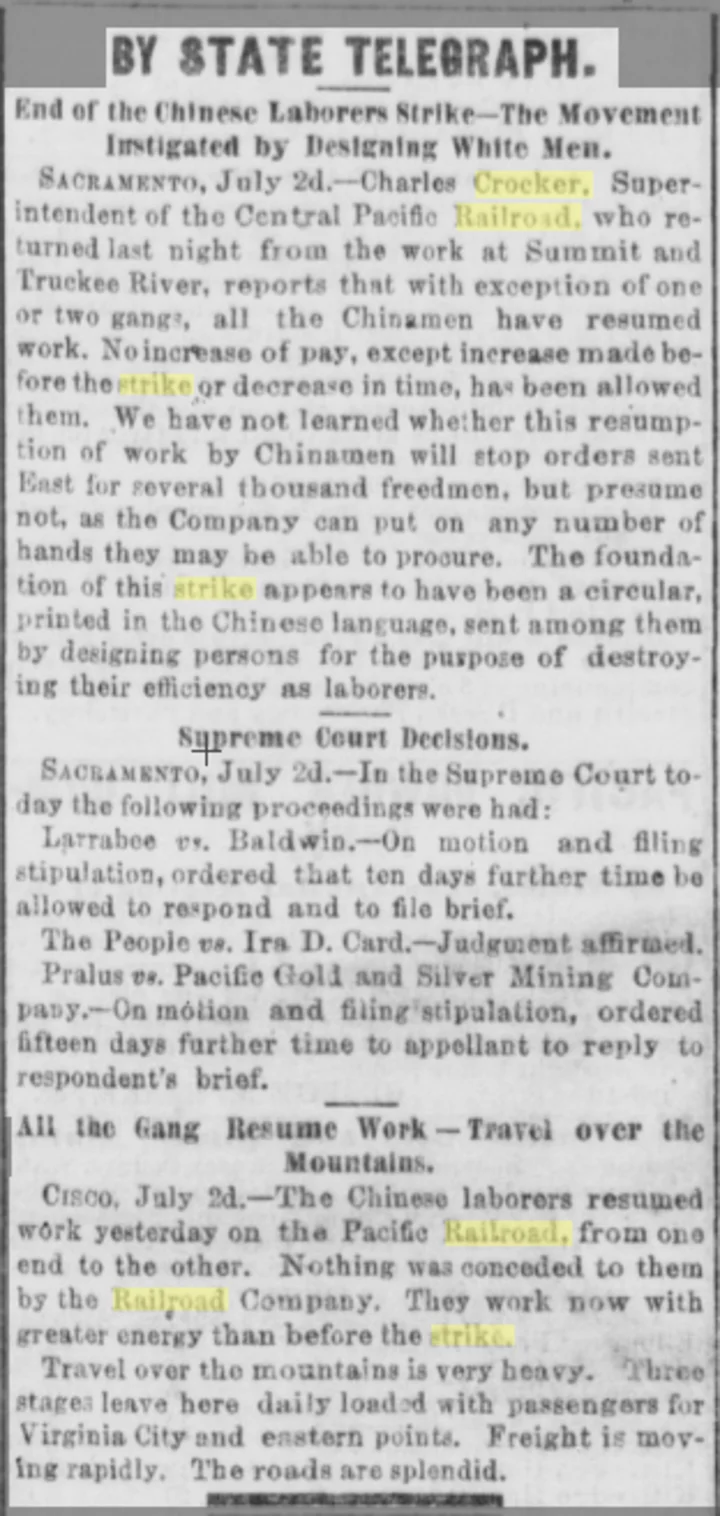Chinese Resisted
The long-term cause of the strike was the continuous contrast of working conditions and wages between the Chinese and the white workers. Most white people performed skilled jobs such as carpentry and blacksmithing; others supervised Chinese workers. Tunnel engineer Gilliss provided some primary evidence for the wage difference: Chinese tunnel workers received 30 to 50 dollars a month on average, plus a food stipend. In comparison, white foremen and skilled workers received 110 to 120 dollars every month.
The fuse that ignited the strike was a tunnel explosion on June 19th, 1867, which took a white man's and five Chinese workers' lives. Five days later, all the Chinese workers from Truckee to Cisco halted working in unity. Chinese workers demanded higher wages, shorter work shifts, and reduced work time.
The Central Pacific, surprised and frightened by the sudden strike, quickly cut off the food supply and transportation. After a week, the strike failed. The non-violent resistance employed by the strikers may have contributed to the strike's failure to get much attention:
"If there had been that number of white laborers [on strike] … it would have been impossible to control them. But this strike of the Chinese was just like Sunday all along the work. These men stayed in their camps. That is, they would come out and walk around, but not a word was said. No violence was perpetrated along the whole line."
~ Charles Crocker
